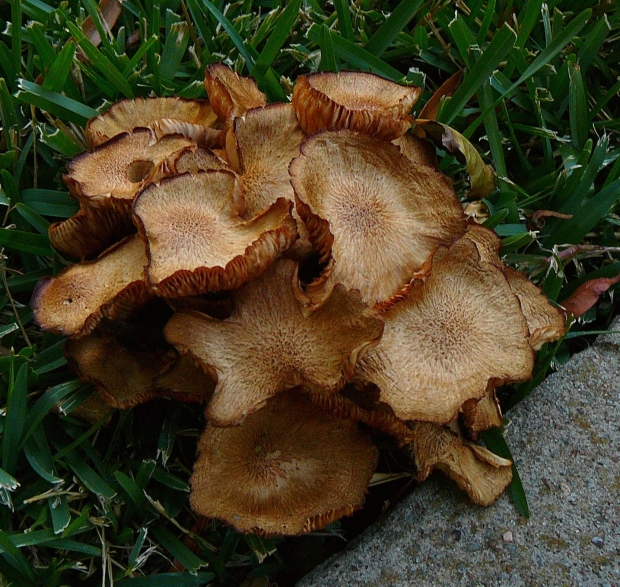Hearing the word mold immediately brings about the connotation of something bad and unhealthy. Mold is a category of fungi that can be found both indoors and outdoors. Usually mold is either associated with old food or moisture in homes. It tends to grow in areas that are warm, damp, and humid, and reproduce and spread by making spores. Common areas mold can be found include bathroom tiles, basement walls, and areas around windows. Events that can cause mold to grow include roof leaks, flooding, heavy rains, and leaks in plumbing fixtures. Mold can be harmless for some, but can cause health problems for those more sensitive to mold.
Exposure to mold either through ingestion or in a closed environment can be potentially dangerous to individuals. For some, exposure to mold can cause no symptoms. For an unfortunate some who are sensitive to mold, exposure can cause nasal stuffiness, eye irritation, wheezing, and/or skin irritation and other allergy related symptoms. Continued exposure can also cause previously non-sensitive individuals to become sensitive or more sensitive to mold. In 2004, the Institute of Medicine (IOM) found that there was a link between indoor exposure to mold and upper respiratory tract symptoms in otherwise healthy persons. Additional studies done since then have suggested that there may be a link between mold exposure and the development of asthma in some children.
 In an extreme example of mold in a rental apartment, a Sacramento woman found in December of 2012 that the mold was so bad in her apartment that mushrooms began to sprout from the carpet. According to Natalie Wise, the tenant, her apartment has experienced flooding six times in the two years she has resided at the apartment. The mold problem had been reported to the management at the complex and the carpet has been replaced several times. However, mold and the subsequent mushrooms have grown back each time. Additionally, Wise resides with her severely asthmatic 11-year-old son and claims that when she has reported problems of flooding, the manager has treated her with contempt.
In an extreme example of mold in a rental apartment, a Sacramento woman found in December of 2012 that the mold was so bad in her apartment that mushrooms began to sprout from the carpet. According to Natalie Wise, the tenant, her apartment has experienced flooding six times in the two years she has resided at the apartment. The mold problem had been reported to the management at the complex and the carpet has been replaced several times. However, mold and the subsequent mushrooms have grown back each time. Additionally, Wise resides with her severely asthmatic 11-year-old son and claims that when she has reported problems of flooding, the manager has treated her with contempt.
 San Francisco Injury Lawyer Blog
San Francisco Injury Lawyer Blog













 When people learn that our team serves as a law firm for elder abuse victims in San Francisco and throughout Northern California, and when they learn how incredibly common the problem is, they often ask how they can help. These people often express concern about their ability to identify
When people learn that our team serves as a law firm for elder abuse victims in San Francisco and throughout Northern California, and when they learn how incredibly common the problem is, they often ask how they can help. These people often express concern about their ability to identify  On March 19, 2011, nineteen year old Pablo Garibay died in a single car accident on James Donlon Boulevard in Antioch. The driver, Rafael Madrid later pled guilty to gross vehicular manslaughter while intoxicated and the court sentenced him to a four year prison sentence. On the two year anniversary, the
On March 19, 2011, nineteen year old Pablo Garibay died in a single car accident on James Donlon Boulevard in Antioch. The driver, Rafael Madrid later pled guilty to gross vehicular manslaughter while intoxicated and the court sentenced him to a four year prison sentence. On the two year anniversary, the  Earlier this month, the
Earlier this month, the  In 1979, the City of San Francisco was facing a housing crisis. The Board of Supervisors and the Mayor enacted the
In 1979, the City of San Francisco was facing a housing crisis. The Board of Supervisors and the Mayor enacted the  The scene in Walnut Creek sounds almost too dramatic; the horrific death and injuries sound almost too terrible. Sometimes reality is more extreme than the most over-the-top, made-to-scare (or, perhaps, “scar”) drivers’ education video. As a law firm with specific experience helping victims of the most catastrophic accidents, The Brod Firm knows that no exaggeration is needed when we warn people that
The scene in Walnut Creek sounds almost too dramatic; the horrific death and injuries sound almost too terrible. Sometimes reality is more extreme than the most over-the-top, made-to-scare (or, perhaps, “scar”) drivers’ education video. As a law firm with specific experience helping victims of the most catastrophic accidents, The Brod Firm knows that no exaggeration is needed when we warn people that